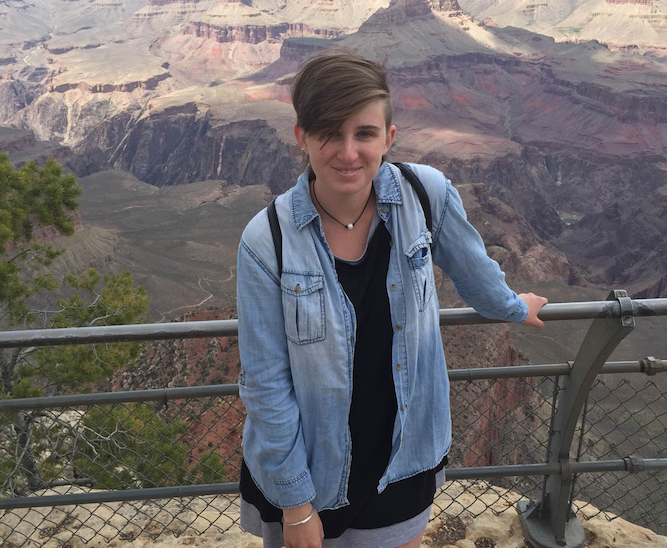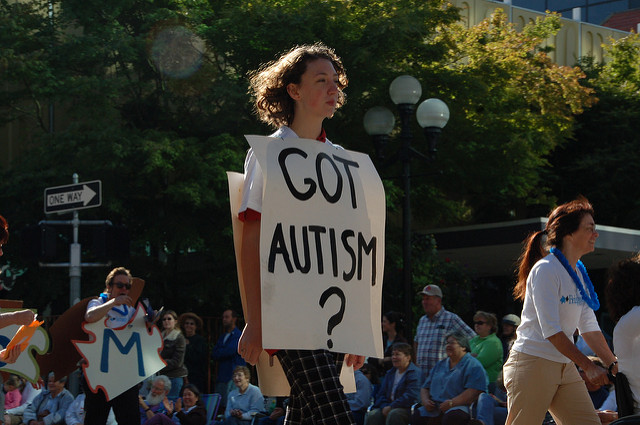This Woman's Story Shows Why It's Hard to Diagnose Autistic Adults

By:
Earlier this week, CNN reported on the experience of journalist Laura James, who was diagnosed with autism in her late 40s. Though autism awareness has increased through campaigns like Autism Acceptance Month, more representation in film and television, and innovative advances in research, many adults still find it difficult to get diagnosed and access support services.
 Josh Ward/Flickr - flic.kr
Josh Ward/Flickr - flic.kr
One reason adults might go undiagnosed is assessment procedures for autism are largely based on childhood behavior.
“The standardized diagnostic checklists we commonly use are designed for children,” neurologist David Beversdorf explained in a blog post on Autism Speaks. “There are no established diagnostic tests for ASD in adults.”
British singer Johnny Dean echoed Beversdorf in The Guardian. “Adults seeking diagnosis are often faced with a struggle,” he said. “The team assessing me were concentrating solely on my childhood, the very distant past, rather than me in the here and now.”
Dean was diagnosed at age 38. Autism, he remarked, was “practically unheard of” when he was growing up in the '70s.
Though the word "autism" was first used in 1908, it didn't appear in the Diagnostic and Statistical Manual of Mental Disorders, a sometimes-controversial diagnostic tool published by the American Psychiatric Association, until 1980. However, its definition continues to change. In the fifth edition of the document, commonly referred to as DSM-5, three separate categories of autism were condensed under the umbrella term “autism spectrum disorder.” This term currently describes a range of developmental disorders that vary in severity.
Because autism is reportedly 4.5 times more common in boys than girls, some experts argue that diagnostic procedures cater to males. In other words, adult women like James often face a distinct set of obstacles in pursuit of a professional diagnosis.
But some experts are skeptical of this claim.
According to a 2011 study, autistic females might present differently than males, meaning they’re more likely to be misdiagnosed. In "Asperger’s and girls," psychologist and writer Tony Attwood argues that girls are more likely than boys to copy the “mannerisms, voice and persona” of others, effectively masking their problems with social interaction.
These coping mechanisms can also lead to misdiagnosis in adults. A 2015 study conducted by researchers at Japan’s University of the Ryukyus found that autism spectrum disorders are often misdiagnosed — especially in primary care settings — as schizophrenia, mood disorders like major depressive disorder, or personality disorders.
People on the autism spectrum are more likely to simultaneously experience mental illnesses than neurotypical people, which further complicates accurate diagnoses.
While seeking any kind of diagnosis is a personal decision, being formally diagnosed has its benefits. On her blog, Musings of an Aspie, Cynthia Kim explained her reasons for being professionally diagnosed included becoming eligible for support, obtaining work or school accommodations, increasing the effectiveness of therapy, and providing “peace of mind.”
“Primarily, I fell into the last category. I needed to know that it wasn’t 'all in my head,'” Kim wrote. “I was 42 when I discovered that I have Asperger’s Syndrome.”
“A diagnosis can provide a framework for understanding and learning about behavioral and emotional challenges that have seemed unexplainable until now,” explained writer and autism consultant Chantal Sicile-Kira in Psychology Today.
In an NPR feature, “When An Autism Diagnosis Comes In Adulthood,” 33-year-old Emily Paige Ballou said her diagnosis was truly relieving. “So much of my life had always been such a mystery,” she remarked, “but I had a real answer now.”
